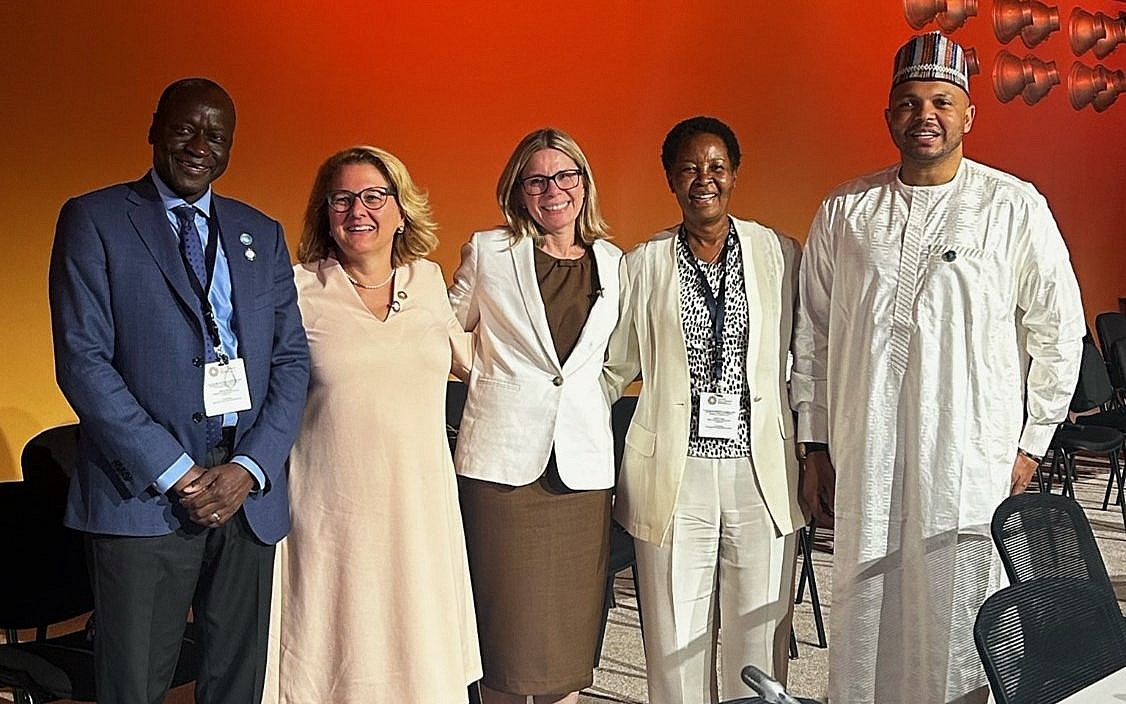Turmoil in the Sahel: Challenges and Perspective for Development Partner Engagement
How do intertwined crises and political instability in the Sahel affect development efforts and how can development partners provide more efficient and effective support to the populations on the ground? These questions were at the heart of the conversation during the Sahel Alliance high-level event “Turmoil in the Sahel: Challenges and Perspective for Development Partner Engagement” at the World Bank IMF Annual Meetings in Marrakech on October 12, 2023.

During the event, the German Minister for Economic Cooperation and Development, Svenja Schulze, who recently took over the Presidency of the Sahel Alliance General Assembly emphasized that Germany along with members of the Sahel Alliance “will remain a reliable partner and continue to support the people of the Sahel region through civilian assistance and to foster human security through development policy”.
The commitment to remain engaged in challenging times was also reiterated by the World Bank Managing Director, Anna Bjerde, with a call to reevaluate partners engagement.
The situation in the Sahel presents a critical juncture, requiring us to reassess our efforts and make necessary changes. We must collectively evaluate what has worked and what hasn’t (…) We recognize that remaining engaged will require innovating, adapting, and re-envisioning our approaches based on lessons learned. Nevertheless, at its core our strategy for remaining engaged needs to place people at the center,” said Anna Bjerde.
Both Ministers from Mauritania and Chad made a call for a collective approach and a stronger focus on prevention to deliver support to the people of Sahel threatened by multiple crises and growing instability. Mauritania Minister of Economy and Sustainable Development Abdessalam Ould Mohamed Saleh highlighted the continuous imbalance between economic growth and the demography, which is driving further people into poverty and unemployment. He also stressed the importance of addressing the needs of the youth and strengthening the education systems. The Chad Minister of Economy, Development Planning and International, For Moussa Batraki, also mentioned the large influx of refugees that fled the conflict in Sudan to find a home in Chad as the country is grappling with immense development challenges, including climate shocks and food insecurity. The need for a faster response at scale was also echoed by the World Bank Executive Director representing Sahel Countries at the Board, Abdoul Salam Bello.
As part of the conclusion, Ousmane Diagana, Chair of the Sahel Alliance Steering committee and World Bank Vice President for Western and Central Africa, noted the need to scale up jointly our investments “to reach concrete results in the three priority sectors, where we can have the greatest impact: the first is to meet the needs of youth through education and employment programs; second is to build resilience through social protection programs and last is to foster local development through integrated initiatives”.
Moving forward the members of the Sahel Alliance agreed to collectively take stock on recent changes and reflect on the lessons learned of the international engagement in the region. They also acknowledge the need to double down on their efforts to build on existing synergies and further strengthen collaborations on the priorities identified for greater impact on the ground.
To go further

